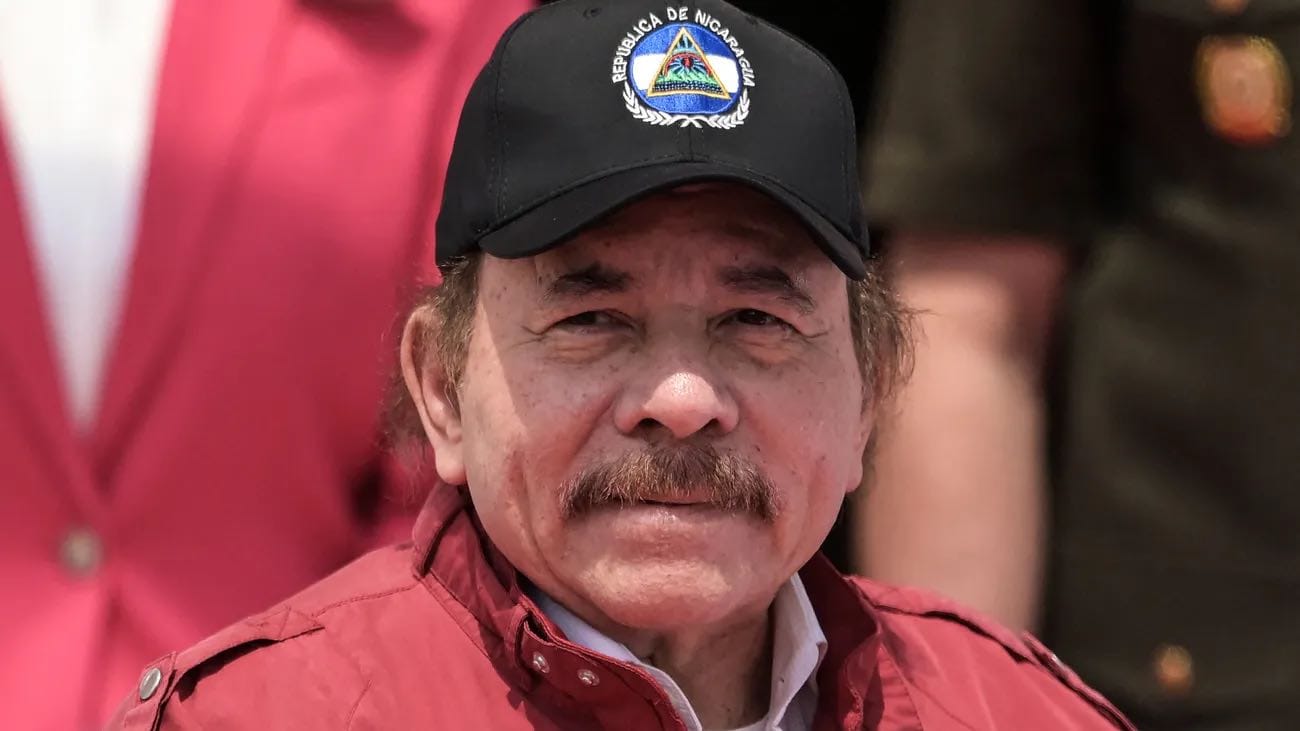Nicaragua’s Government Escalates Crackdown on Civil Society and Religious Institutions
On Monday, the government announced the dissolution of 1,500 NGOs, including the Nicaraguan Red Cross
In a continued assault on civil society, the Nicaraguan government, led by President Daniel Ortega, has intensified its crackdown on non-governmental organizations (NGOs) and religious institutions. On Monday, the government announced the dissolution of 1,500 NGOs, including the Nicaraguan Red Cross and various Catholic charities, accusing them of violating financial regulations and failing to disclose donations. This latest move is part of a broader, sustained effort to quash dissent and consolidate power, which has already seen the closure of over 5,000 civil society groups, private universities, and media outlets since 2018.
A History of Repression
Ortega, who first rose to power in 1979 as a leader of the Sandinista movement that overthrew the Somoza dictatorship, has been at the helm of Nicaragua for the majority of the past four decades. After losing the presidency in 1990, Ortega made a political comeback in 2007. Since then, his administration has systematically dismantled democratic institutions, removing presidential term limits, and exerting control over all branches of government.
The recent crackdown on NGOs and religious organizations is the latest chapter in Ortega’s playbook, which has escalated significantly since the outbreak of anti-government protests in 2018. These protests, triggered by unpopular social security reforms, were met with a violent response from the government. Human rights organizations estimate that more than 300 people were killed during the ensuing crackdown, with thousands more injured or detained.
Targeting the Catholic Church and Civil Society
The Catholic Church, traditionally a powerful institution in Nicaragua, has been a particular target of Ortega’s repression. The Church’s support for the 2018 protests and its criticism of the government’s human rights abuses have made it a prime target. In recent years, numerous Catholic radio stations, universities, and charitable organizations have been shut down. The government has also imprisoned and expelled dozens of clergy, accusing them of fomenting dissent and undermining state authority.
Monday’s announcement of the dissolution of 1,500 NGOs follows a similar pattern. The Interior Ministry’s resolution, published in the official gazette, claimed that these organizations had failed to meet legal obligations, such as disclosing financial information and reporting foreign donations. However, critics argue that these charges are spurious and part of a broader strategy to stifle independent voices and eliminate any potential opposition.
The confiscation of assets belonging to these groups by the state further underscores the government’s intent to weaken civil society. The new regulation requiring NGOs to work exclusively in “partnership alliances” with state entities effectively places them under government control, stripping them of their independence and limiting their ability to operate freely.
International Condemnation and Sanctions
The international community has reacted with growing concern to Ortega’s actions. Last month, a group of United Nations experts condemned the “systematic and widespread abuses of international human rights law” in Nicaragua. The Inter-American Commission on Human Rights (IACHR) has also called for an end to the repression, urging the immediate release of political prisoners and expressing alarm over the conditions in which detainees are held.
The United States and the European Union have imposed sanctions on Ortega’s regime, targeting individuals and entities linked to human rights abuses and corruption. Despite these measures, Ortega has shown little inclination to change course, doubling down on his repressive tactics in the face of international pressure.
A Nation in Crisis
Nicaragua’s descent into authoritarianism has left the country isolated on the international stage and mired in a deep political and economic crisis. With civil society and the independent press all but extinguished, the Nicaraguan people face an increasingly bleak future under a regime that tolerates no dissent. As Ortega continues to tighten his grip on power, the prospects for a peaceful and democratic resolution to the country’s crisis appear increasingly remote.
The international community’s response will be critical in determining Nicaragua’s future. Continued diplomatic pressure and targeted sanctions may yet force Ortega to reconsider his approach. However, without meaningful internal resistance or a significant shift in regional dynamics, the likelihood of substantial change remains slim.






